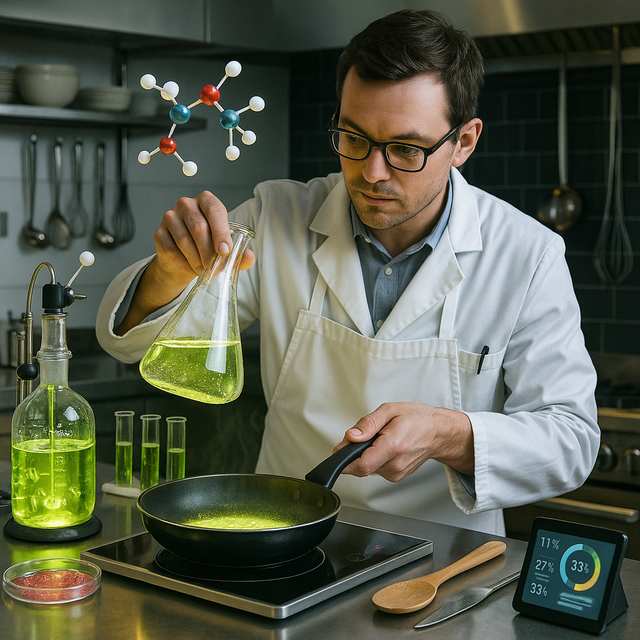
Biotechnology in the kitchen represents a fundamental change in the way we produce and consume food, integrating advanced scientific methods to create new protein sources with reduced environmental impact and potential health benefits.
At the heart of this revolution is the idea of ??developing lab-grown meat—animal cells grown in bioreactors under strict environmental control, eliminating the need for factory farms and minimizing greenhouse gas emissions.
This process offers the possibility of producing meat without violence against animals and with a nutritional profile that can be adjusted according to metabolic needs, such as the content of unsaturated fats or minerals important for the human body.
Another branch of food biotechnology involves alternative proteins, which in addition to cultured meat, include plant-based solutions processed with the help of genetic engineering and microbiology. Through the fermentation of microorganisms such as fungi and algae, or the processing of soybeans, peas, beans and grains, vegetarian “steaks” are created with a texture and flavor very close to animal products.
Similarly, methodologies based on direct enzyme fermentation allow the production of pure proteins, with few other ingredients, which significantly reduces allergens and unnecessary additives.
The connection of next-generation foods to our health is one of the strongest arguments in favor of their implementation. Protein grown in the laboratory can be tailored to meet the specific needs of people with cardiovascular or metabolic problems, reducing saturated fat and cholesterol.
At the same time, alternative plant proteins are a source of fiber, B vitamins and antioxidants, supporting a better balance of intestinal microbiota and improving digestion. For those following personalized diets, biotechnology offers the option of producing foods with amino acid profiles designed exclusively for muscle growth, strengthening the immune system or maintaining bone density.
However, this development is not without challenges. Legal regulations for food safety, international approvals, and ethical issues surrounding the use of genetically modified embryonic or insect cells must be carefully addressed.
Furthermore, the cost of production remains high, preventing mass market penetration at competitive prices to traditional products. Consumer acceptance is also crucial: education on environmental and health benefits, together with transparency of the production process, will play a key role in building trust.
Despite the challenges, the prospects are promising. Scientists are working on optimizing bioreactors, reducing costs, and integrating with renewable energy sources, while chefs are experimenting with the first recipes with cultured meat or fermented protein bases, adapting them to traditional Albanian tastes.
In this way, biotechnology in the kitchen becomes a bridge between gastronomic heritage and the needs of a changing planet, promising safer, more sustainable and healthier foods for generations to come.





